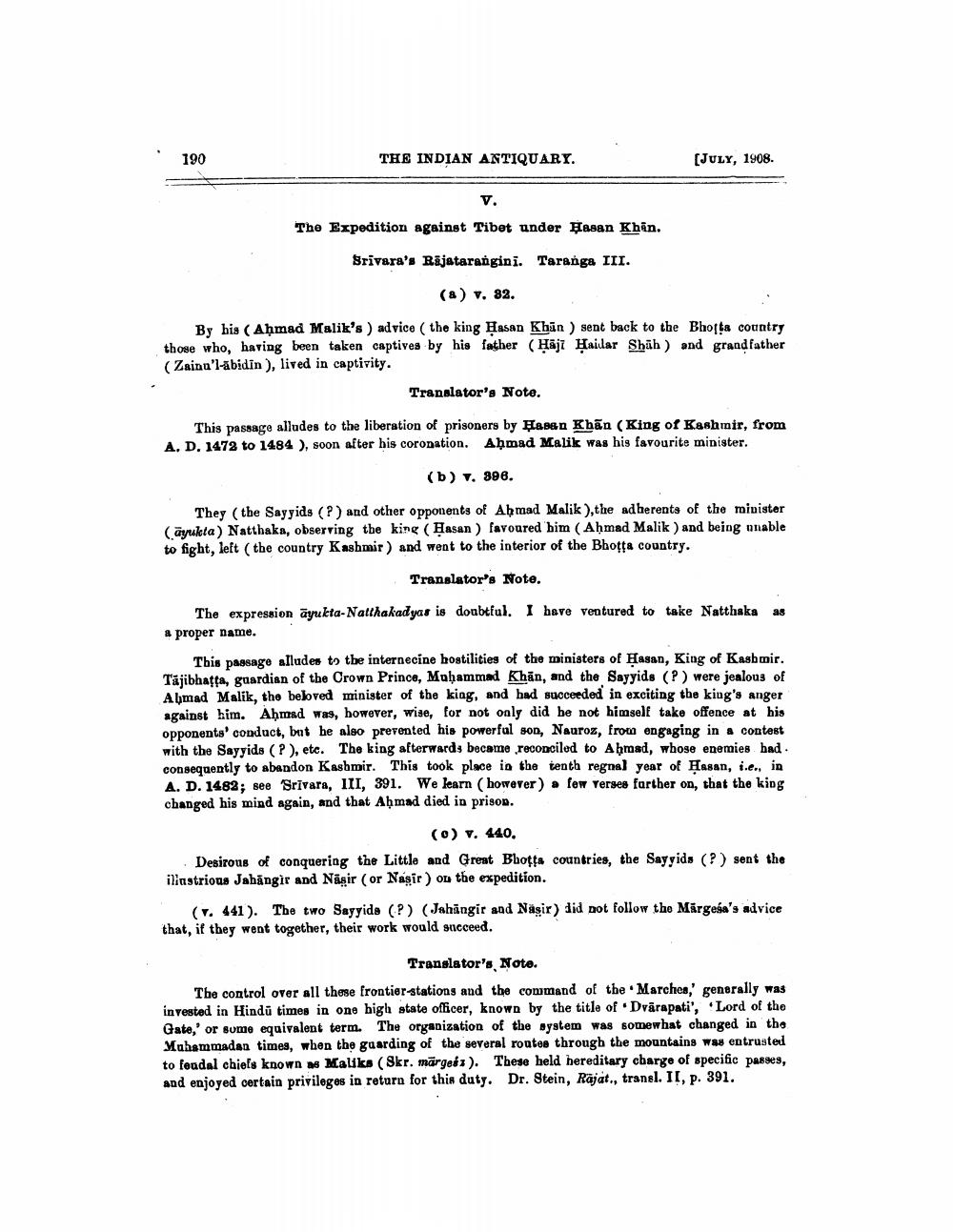________________
190
THE INDIAN ANTIQUARY.
(JULY, 1908
The Expedition against Tibet under Hasan Khin.
Srivara's Rājatarangini. Taranga III.
(a) v. 82.
By his ( Ahmad Malik's ) advice ( the king Hasan Khan ) sent back to the Bhorta country those who, having been taken captives by his father (Hāji Haidar Shūh ) and grandfather (Zainu'l-abidin ), lived in captivity.
Translator's Note.
This passage alludes to the liberation of prisoners by asan Khān (King of Kashmir, from A. D. 1472 to 1484 ), soon after his coronation. Ahmad Malik was his favourite minister.
(b) v. 896.
They (the Sayyids (?) and other opponents of Ahmad Malik), the adherents of the minister (ayukta) Natthaka, observing the king (Hasan ) favoured him (Ahmad Malik) and being nnable to fight, left the country Kashmir ) and went to the interior of the Bhoţta country.
Translator's Note.
The expression äyukta-Natthakad yas is doubtful. I have ventured to take Natthaka as a proper name.
This pagsago alluden to the internecine hostilities of the ministers of Hasan, King of Kashmir. Tájibhatta, guardian of the Crown Prince, Muhammad Khān, and the Sayyids (P) were jealous of Ahmad Malik, the beloved minister of the king, and had succeeded in exciting the king's anger against him. Ahmad was, however, wise, for not only did be not himself take offence at his opponents' conduct, but he also presented his powerful son, Nauroz, from engaging in a contest with the Sayyids (?), etc. The king afterwards became reconciled to Ahmad, whose enemies had. consequently to abandon Kashmir. This took place in the tenth regna) year of Hasan, i.e., in A. D. 1482; see Srivara, III, 391. We learn however) a few verses farther on, that the king changed his mind again, and that Ahmad died in prison.
(O) v. 440. Desirous of conquering the Little and Great Bhotta countries, the Sayyids (?) sent the illastrious Jahangir and Nasir (or Nasir ) on the expedition.
(v. 441). The two Sayyida (P) (Jahangir and Nasir) did not follow the Märgesa's advice that, if they went together, their work would succeed.
Translator's Note. The control over all these frontier-stations and the command of the Marchen,' generally was invested in Hindū times in one high state officer, known by the title of Dvärapati', Lord of the Gate,' or sumo equivalent term. The organization of the system was somewhat changed in the Muhammadan times, when the guarding of the several routes through the mountains was entrusted to feudal chiefs known as Maliks (Skr. mārgesz). These held bereditary charge of specific passes, and enjoyed certain privileges in return for this duty. Dr. Stein, Rajat., transl. II, p. 391.




